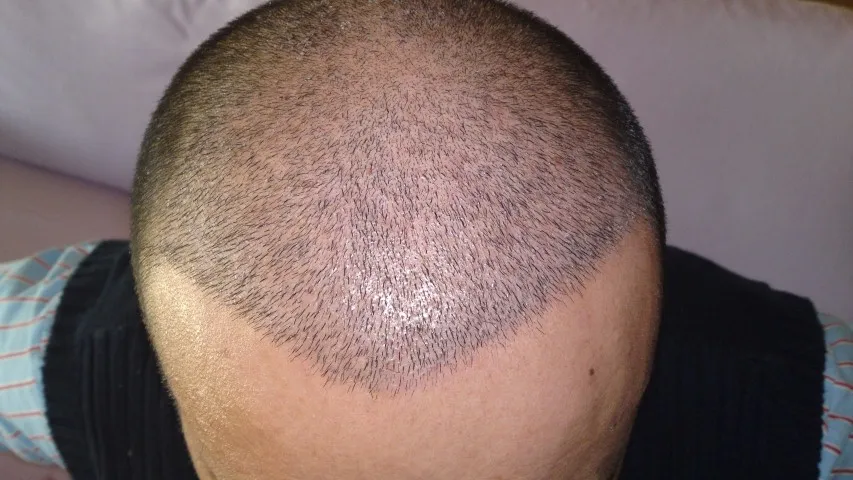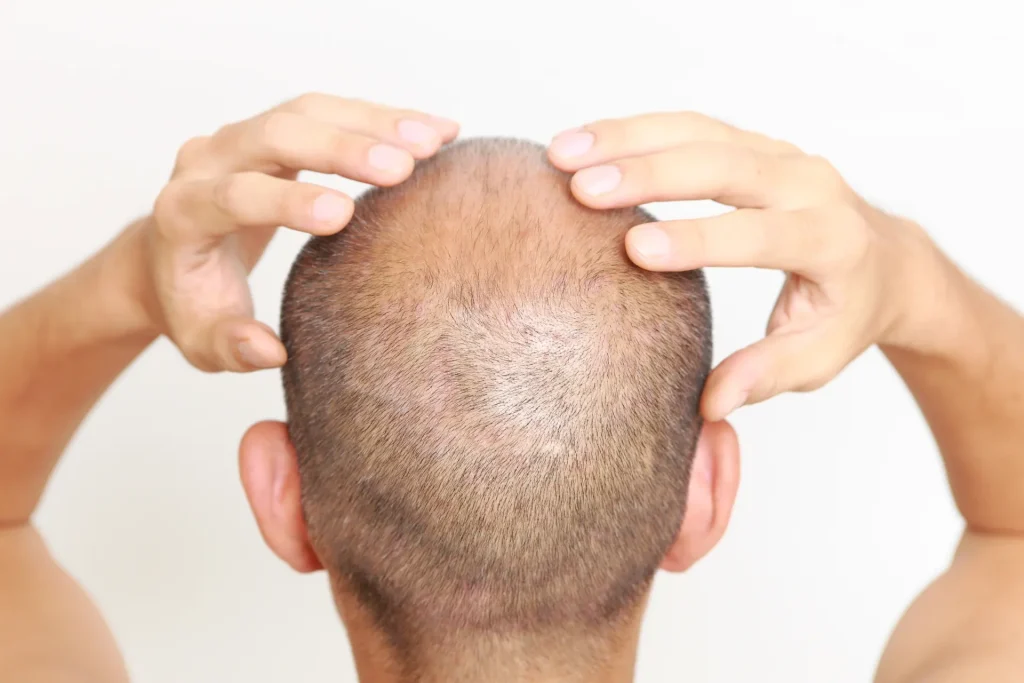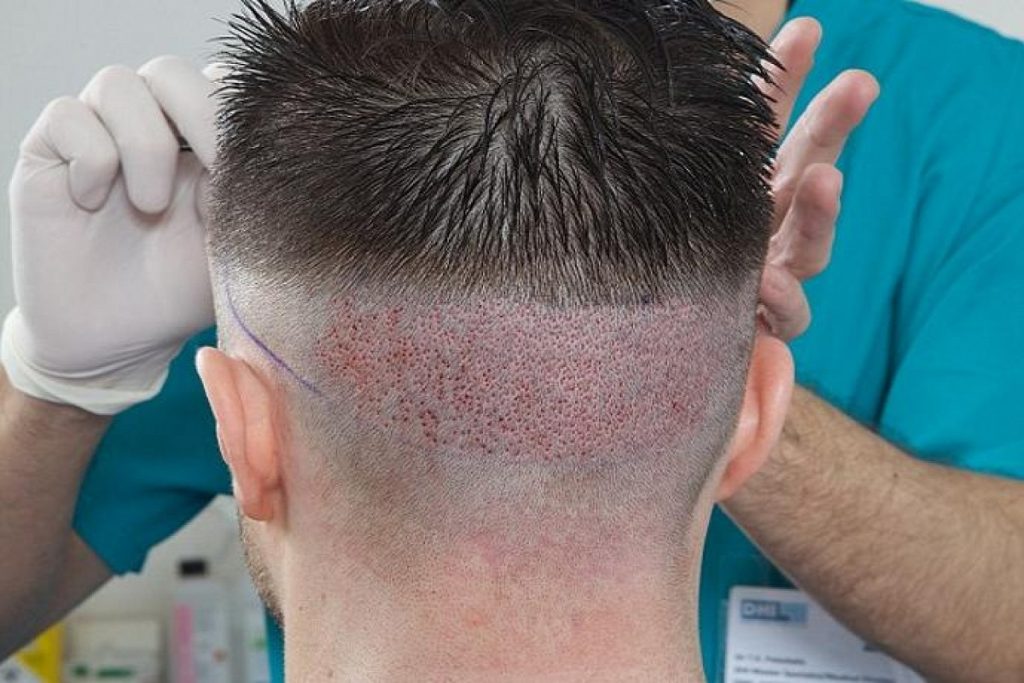After undergoing a hair transplant, many patients are eager to resume their normal activities, including travel. However, it is important to consider the recovery process and the potential impact of flying on the newly transplanted hair follicles. When can I fly after my hair transplant? is a common question among patients. Understanding the timeline and guidelines for post-transplant travel can help ensure a successful outcome. In this article, we will discuss the factors to consider and provide recommendations for when it is safe to fly after a hair transplant.
Guidelines for Flying After Hair Transplant Surgery

After undergoing a hair transplant surgery, it is important to take proper care of the newly transplanted hair to ensure successful results. If you have upcoming travel plans that involve flying, it is crucial to follow certain guidelines to protect your hair and promote proper healing. Here are some important considerations to keep in mind when flying after hair transplant surgery:
1. Consult with Your Surgeon
Before making any travel arrangements, consult with your surgeon to discuss your travel plans and get their approval. They can provide personalized recommendations based on your specific surgery and recovery progress.
2. Avoid Direct Sun Exposure
When flying, avoid direct sun exposure to your scalp by wearing a hat or using a scarf. Prolonged sun exposure can have a negative impact on the healing process and may cause discomfort.
3. Stay Hydrated
During your flight, it is important to stay hydrated by drinking plenty of water. Air travel can lead to dehydration, which can negatively affect your overall health and the healing of your scalp.
4. Minimize Physical Strain
Try to minimize physical strain during the flight, as excessive movement and heavy lifting can put unnecessary pressure on your scalp and affect the healing process.
5. Follow Post-Op Care Instructions
Continue to follow the post-op care instructions provided by your surgeon, even while traveling. This may include avoiding certain activities, using specific products, and attending follow-up appointments.
By following these guidelines and taking necessary precautions, you can ensure that your hair transplant surgery is not compromised by air travel. Remember to prioritize the health and well-being of your scalp during this critical healing period.
Recovery Period Before Flying After Hair Transplant

After undergoing a hair transplant procedure, it is important to allow an adequate recovery period before considering any air travel. While each patient’s recovery time may vary based on individual circumstances, there are general guidelines that should be followed to ensure a safe and successful recovery.
Immediate Post-Operative Period
Immediately following the hair transplant procedure, patients should avoid any strenuous activities, including air travel. The body needs time to heal and any added stress or pressure from flying could impede the healing process. It is recommended to rest and allow the body to recover in the days following the procedure.
First Week After Procedure
During the first week after the hair transplant, patients should continue to take it easy and avoid any activities that could strain the body. This includes refraining from air travel. It is important to follow the post-operative care instructions provided by the surgeon to ensure proper healing and minimize the risk of complications.
Recovery Timeline
The general recovery timeline for hair transplant patients before considering flying can vary, but it is typically advised to wait at least 7 to 10 days before flying. This allows for an initial healing period and reduces the risk of any complications that could arise from flying too soon after the procedure.
| Timeframe | Recovery Milestone |
|---|---|
| Immediately Post-Op | Rest and avoid strenuous activities |
| 1-7 Days | Follow post-operative care instructions |
| 7-10 Days | Consideration for flying after initial healing |
It is important for patients to consult with their surgeon before making any decisions about air travel after a hair transplant. The surgeon can provide personalized advice based on the individual’s recovery progress and specific circumstances.
Overall, allowing an adequate recovery period before flying after a hair transplant is crucial for ensuring the best possible outcome and reducing the risk of any potential complications. Patience and following post-operative care instructions are key to a successful recovery.
Choosing the Right Time to Fly Post Hair Transplant

Undergoing a hair transplant is a big decision and involves careful planning, not only for the surgery itself but also for the recovery period that follows. One important aspect to consider during the recovery period is when it is safe to resume activities such as flying. Traveling by air post hair transplant requires careful consideration to ensure the best possible outcome for the procedure.
Factors to Consider
When deciding on the right time to fly after a hair transplant, there are several important factors to consider. First and foremost, it is crucial to follow the guidance of your surgeon. They will be able to assess your individual case and provide personalized recommendations based on the specific details of your surgery and recovery.
Additionally, it is important to consider the type of hair transplant procedure you’ve undergone. Different techniques may have varying impacts on recovery time and potential risks associated with flying. It’s important to discuss this with your surgeon before making any travel plans.
Another important consideration is the length of the flight you are planning to take. Long-haul flights can put additional stress on the body, and it’s important to ensure that you are fully healed and ready for the physical demands of air travel.
Recovery Time
The recovery period for a hair transplant can vary depending on the individual and the specifics of the procedure. In general, most patients are advised to avoid flying for at least a few days to a week after the surgery. This allows time for the initial healing process to take place and reduces the risk of complications associated with flying too soon.
However, it’s important to note that full recovery can take several weeks, and it’s best to consult with your surgeon before making any travel plans. They will be able to provide specific guidance based on your progress and ensure that you are fully healed and ready to fly safely.
In conclusion, choosing the right time to fly post hair transplant requires careful consideration of various factors, including the advice of your surgeon, the type of procedure you’ve undergone, and the length of the flight. By taking these factors into account and ensuring that you are fully healed, you can minimize the risk of complications and make the most of your hair transplant results.
Travel Considerations Following Hair Transplant Procedure
Undergoing a hair transplant procedure is a significant decision and requires careful consideration, especially when it comes to travel following the surgery. Whether you are planning a business trip, vacation, or any other travel activity, it is essential to take certain factors into account to ensure a smooth and successful recovery process.
Timing of Travel:
It is crucial to carefully consider the timing of your travel plans following a hair transplant procedure. Typically, it is recommended to wait for at least 7-10 days before considering any type of travel. This allows for an initial recovery period and reduces the risk of complications during travel.
Mode of Travel:
The mode of travel also plays a significant role in post-operative considerations. If possible, opt for a mode of travel that minimizes physical exertion and reduces the risk of injury to the scalp. This may involve avoiding long-haul flights, train journeys, or any form of travel that may involve extensive walking or physical strain.
Destination Choice:
When choosing a destination for post-operative travel, it is important to consider the climate and environmental factors that may impact the recovery process. Select a destination that offers a mild and stable climate, as extreme weather conditions can have a negative impact on the healing process.
Medical Follow-Up:
Prior to traveling, it is essential to ensure that you have access to any required medical follow-up appointments or consultations. This may involve coordinating with your hair transplant surgeon to schedule any necessary follow-up care, especially if you are traveling abroad.
Medication and Supplies:
Don’t forget to pack any prescribed medications, as well as any post-operative care supplies that may be required during your travels. This may include specialized shampoos, ointments, or protective gear for the scalp.
In conclusion, planning travel following a hair transplant procedure requires careful consideration and preparation. By following these key considerations, you can ensure a successful and comfortable recovery process while minimizing any potential risks or complications.
Potential Risks of Flying Too Soon After Hair Transplant Surgery
After undergoing a hair transplant surgery, it is important to take the necessary precautions to ensure a smooth and successful recovery. One of the key considerations during this time is avoiding activities that could potentially compromise the results of the surgery. One such activity is flying too soon after the hair transplant procedure.
During the initial days and weeks following a hair transplant, the scalp is in a vulnerable state. The transplanted hair follicles are still in the process of establishing themselves and any undue stress or pressure on the scalp could jeopardize their survival. When flying, changes in air pressure and altitude can put added stress on the scalp, potentially leading to complications such as poor graft survival, increased swelling, and prolonged healing time.
Another potential risk of flying too soon after a hair transplant surgery is the heightened risk of infection. Airports and airplanes are known to be breeding grounds for bacteria and other pathogens. Additionally, the close proximity to other passengers and the confined spaces on airplanes can increase the likelihood of exposure to infectious agents. Since the scalp is still in the process of healing and is more susceptible to infections during this time, flying too soon after the surgery can significantly increase the risk of post-operative complications.
It is generally recommended to wait at least 7-10 days before flying after a hair transplant surgery
. This allows for an initial period of healing and minimizes the potential risks associated with flying too soon. However, it is important to consult with your surgeon before making any travel plans to ensure that you are clear to fly and that your specific circumstances are taken into account.
Frequently Asked Questions
Can I fly immediately after hair transplant surgery?
It is generally not recommended to fly immediately after hair transplant surgery, as the changes in air pressure and the potential for physical strain during travel can affect the healing process. It is best to consult with your doctor for specific recommendations.
How long should I wait before flying after hair transplant surgery?
Most doctors recommend waiting at least 7-10 days before flying after hair transplant surgery. This allows time for initial healing and reduces the risk of complications during air travel.
Are there any specific precautions I should take when flying after hair transplant surgery?
When flying after hair transplant surgery, it is important to stay hydrated, avoid strenuous activities, and follow any post-operative care instructions provided by your doctor. It is also advisable to avoid touching or scratching the transplanted area during the flight.
Are there any potential risks of flying too soon after hair transplant surgery?
Flying too soon after hair transplant surgery can increase the risk of post-operative complications such as swelling, discomfort, or delayed healing. It is important to prioritize your recovery and follow your doctor’s recommendations regarding travel.
When is it safe to resume normal activities including flying after hair transplant surgery?
It is typically safe to resume normal activities, including flying, within 2-3 weeks after hair transplant surgery. However, it is important to consult with your doctor for personalized guidance based on your individual healing progress.
